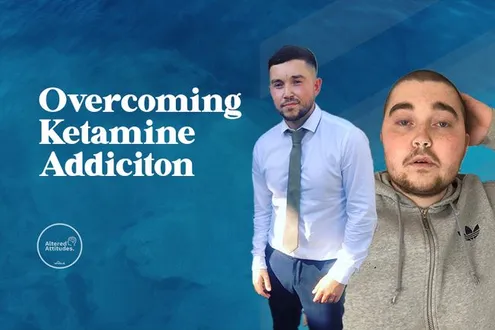Cocaine is a potent stimulant that is highly addictive. Most often used as a recreational drug, it is usually snorted through the nose or applied to the gums in white powder form. The intensity of the ‘high’ it creates is often short-lived and, if you or a loved one begin misusing cocaine, a tolerance to the drug develops, leading to a need to take more in order to achieve the desired effects.
Is Cocaine physically addictive?
Yes, it is physically addictive. This is because cocaine affects the brain's reward system by increasing levels of dopamine, a neurotransmitter associated with pleasure and movement. The repeated use leads to changes in the brain's structure and function, which contributes to the development of the addiction. Users quickly develop tolerance to cocaine, meaning they need to consume more of the drug to experience the same high, leading to increased use and dependence.
If you are concerned about a loved one and their cocaine use speak to our Treatment Advisors

Cocaine is psychologically addictive because it can produce an intense feeling of pleasure and a powerful ‘high’; a rewarding stimulus in parts of the brain which addicted individuals are compelled to replicate.
It is also physically addicting and becoming dependent upon it can happen so quickly it often takes those who use it by surprise. Tolerance begins to build after using it just once and, because this tolerance builds rapidly, addicted users can soon find that they are taking it in increasingly large amounts to achieve the same effect as the earlier experiences. Long-term use can have a serious effect on someone’s ability to function in society and can also lead to other health problems in the heart, brain, kidneys and stomach.
Cocaine can be physically addictive primarily due to its profound impact on the brain's reward system. Here are the key reasons why cocaine is addictive
Dopamine Release:
- Cocaine increases the levels of dopamine in the brain. Dopamine is a neurotransmitter associated with pleasure and reward. Normally, dopamine is released in response to potential rewards (e.g., food, sex), and then recycled back into the cell that released it.
- Cocaine blocks the reabsorption (reuptake) of dopamine, leading to an accumulation of dopamine in the synapses (the gaps between neurons). This excessive dopamine in the brain's reward pathway causes intense feelings of euphoria and pleasure.
Reinforcement:
- The euphoria caused by cocaine is highly reinforcing. Users quickly learn to associate the drug with these pleasurable feelings, creating a powerful drive to continue using the drug.
- This reinforcement is a key factor in the development of addiction, as users repeatedly seek out the drug to replicate the pleasurable experience.
Changes in Brain Structure and Function:
- Chronic cocaine use leads to changes in the brain's structure and function. The brain adapts to the increased dopamine levels by reducing the number of dopamine receptors or decreasing their sensitivity.
- These changes can make it difficult for the brain to experience pleasure from natural rewards, leading to an increased reliance on cocaine to feel good.
Tolerance:
Over time, users develop tolerance to cocaine, meaning they need higher and more frequent doses to achieve the same effects. This escalates the cycle of addiction.
Withdrawal Symptoms:
When a person stops using, they often experience detoxing and withdrawal symptoms from Cocaine such as fatigue, depression, anxiety, irritability, and intense cravings for the drug. These withdrawal symptoms can be very uncomfortable, leading individuals to continue using cocaine to avoid the negative feelings associated with withdrawal.
Cocaine is considered highly addictive due to its powerful effects on the brain's reward system and the speed at which it induces dependence and addiction. Here are several factors that contribute to the high addictive potential of cocaine:
Rapid Onset of Euphoria:
Cocaine produces intense euphoria very quickly, especially when smoked (crack cocaine) or injected, which leads to a rapid reinforcement of drug-taking behaviour.
Short Duration of Effects:
The high from cocaine is short-lived, typically lasting only about 15-30 minutes when snorted and even shorter when smoked or injected. This brevity often leads users to binge on the drug to maintain the high.
High Reinforcement:
The pleasurable effects of cocaine are highly reinforcing. Users quickly learn to associate the drug with euphoria, leading to repeated use.
Craving and Compulsive Use:
Cocaine induces strong cravings and compulsive drug-seeking behaviour. Even after short periods of use, individuals can develop a powerful desire to keep using the drug.
Tolerance and Escalation:
Users rapidly develop tolerance to cocaine, needing increasingly larger doses to achieve the same effects. This escalation can quickly lead to addiction.









